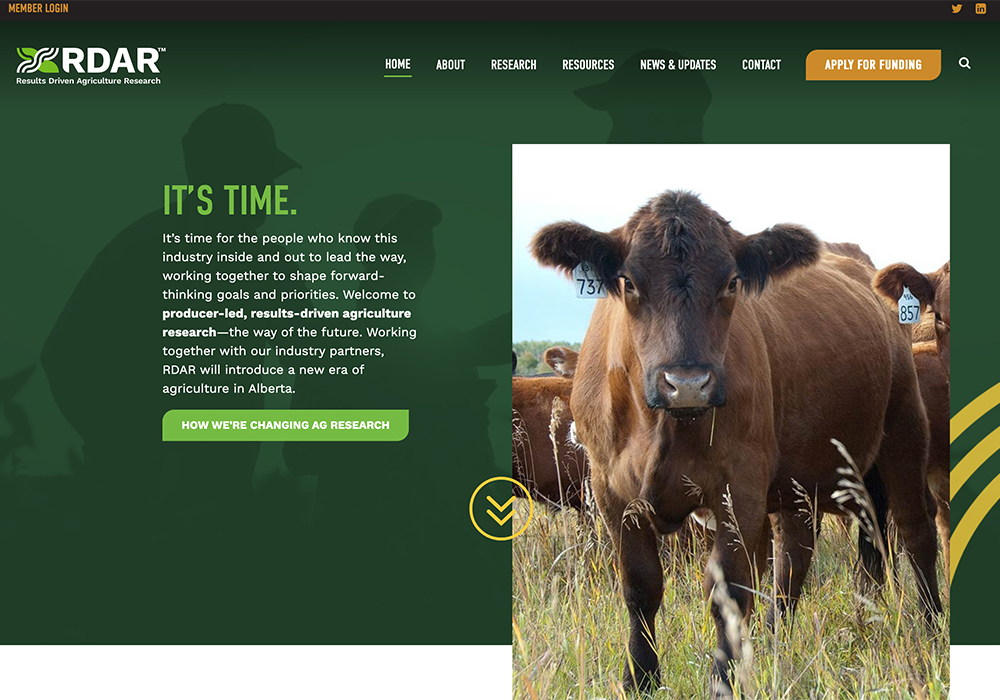Results Driven Agriculture Research project recipients range from precision irrigation to on-farm grain drying to soil health
The first recipients of funds through Results Driven Agriculture Research, the organization that has largely replaced Alberta Agriculture government research, have been selected and notifications to those who provided project proposals are underway.
RDAR issued a call for proposals Oct. 20, with $4 million in provincial and federal government funding at its disposal. It drew 117 proposals with a total ask of $33.6 million. The large response prompted RDAR to allocate an additional $3 million.
“Given the appetite and the fact that we want to get these funds into the hands of people sooner rather than later, the board revisited it and we allocated an additional $3 million due to the overwhelming positive response and the merit of the proposals,” said RDAR board chair Dr. David Chalack.
Read Also

Saskatchewan dairy farm breeds international champion
A Saskatchewan bred cow made history at the 2025 World Dairy Expo in Madison, Wisconsin, when she was named grand champion in the five-year-old Holstein class.
As of Feb. 5, 13 projects had been selected for RDAR funding and applicants had been notified. Another four to six successful projects were to be determined earlier this week.
The initial call requested proposals in four target areas: soil health and quality; water quality and efficiency; feed production; and plant and animal diseases and pests.
Chalack said proposals ran the gamut from precision irrigation research to soil health, nutrient availability, on-farm grain drying, potato storage and honeybee health. Many proposals involve research projects that will take years to complete.
All proposals are initially reviewed by RDAR staff, then peer reviewed and submitted to the RDAR research committee chaired by Stan Blade. The committee then makes recommendations to the board based on each proposal’s merit.
“We certainly want to have an impact on how producers operate their businesses and become more successful and profitable and there has to be some patience for the results to unfold,” said Chalack.
Clinton Dobson, RDAR’s research director, shared Chalack’s surprise at the number of proposals submitted in the organization’s inaugural call.
“It was more than expected and so it’s good to see the research community pulling together to bring forward research proposals that will advance our agriculture industry, so we were quite surprised. Pleasantly.”
Once all who submitted proposals have been notified, the successful projects, amounts allocated and identity of the researchers or research body undertaking the work will be posted to the RDAR website.
RDAR is a member of the Agriculture Funding Consortium (AFC), an informal body through which more than a dozen agricultural organizations review research proposals, discuss research needs and aim to reduce overlap that might arise in research projects that apply to more than one sector.
RDAR has budgeted up to $10 million for research projects submitted through the AFC. Dobson said 103 proposals have been submitted through that funding avenue, with a total ask of $28 million. Some have already been approved to receive funding.
















